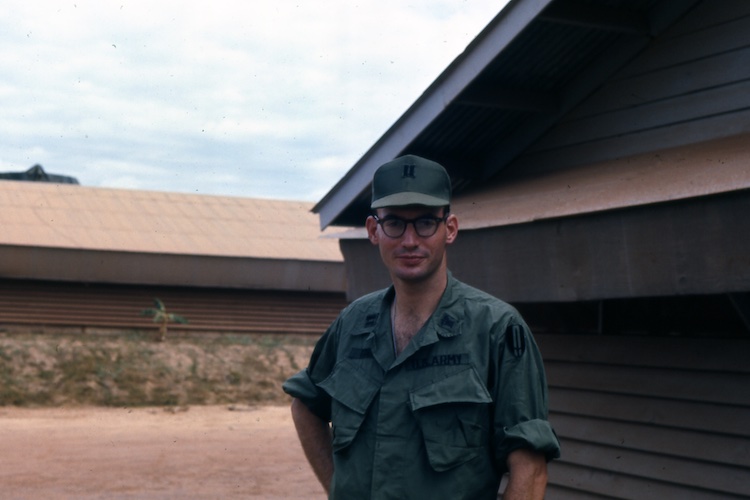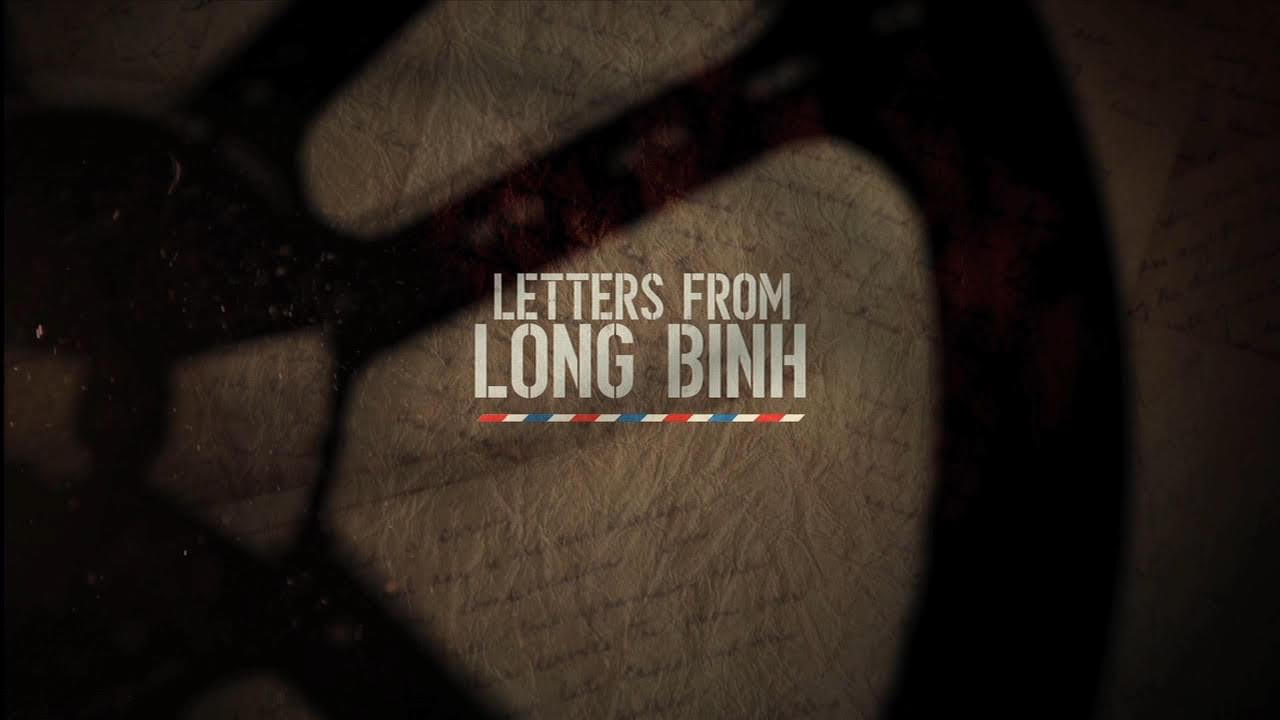
 Back to News
Back to News
The documentary that changed one alum’s life
When Bruce Stern died unexpectedly in 2007, his son, Greg (SM ’00), went to his parents’ home to sort through the memories Bruce left behind.
One of the first items Greg unpacked was an unlabeled box decorated with illustrations of fishing boats. When he opened it, there were more than 25 reel-to-reel audio tapes.
“I had no idea what they were,” Greg says.
As a features producer for HBO, Greg had industry friends with equipment that could digitize the tapes. He sent one tape over to get an idea of their contents. When the converted audio file came back, he was amazed. It featured Bruce’s voice, talking about his time as a U.S. Army captain in the Vietnam War.
“It was like my father was still with me,” Greg says. “I could hear him. I could talk to him if I wanted to, and he was telling me a story.”
Intrigued, Stern returned to his parents’ house. In a cabinet in a different spot in the house, he found thousands of slides his father had taken on film. In the garage, on an uppermost shelf, he found a large white garbage bag containing every letter Bruce had received, still in its envelope with postage attached, while in Vietnam.
At the time, Greg wasn’t very happy with his job. As he categorized the trove of material Bruce had left behind, listening to the layers of frustration around the culture of the Army in his father’s voice, Greg decided to make a change.
“It made me think, ‘All right, why don’t I just do something different?’’” Greg says. “’Why don’t I quit my job and make a film?’”
That film would become Letters from Long Binh, a documentary that would take Greg a decade to make. It chronicles Bruce’s nine months at Long Binh Post, the army’s largest base in Vietnam during that war, and includes audio from Bruce and his parents, grandparents, sister, friends, and neighbors sending “talking letters” back and forth — the precursor to the modern voice note. Greg even tracked down and interviewed Bruce’s Army buddies and girlfriend from that period to provide context for the historical and personal moments he’d stumbled upon.
“Even though it took me 10 years, it didn't seem like 10 years,” he says. “It made me feel like even though I lost my father, maybe I didn't."
Greg’s discovery of the tapes was serendipitous, in part because he had the knowhow to do something with them. He’d been working in TV and film since enrolling at U-M Kinesiology in 1996, when he was the assistant sports director for WOLV-TV, the university’s student-run TV station. After graduation, he was a producer on documentaries for HBO, including Do You Believe in Miracles: The Story of The 1980 US Hockey Team and Michigan vs. Ohio State: The Rivalry.
“If I didn’t know the documentary process, if I didn’t know who had the equipment to do it, if I hadn’t worked on films before then, I might have sent the reel to Costco or some local place, and it could have gotten lost,” Greg says. “Instead, it was done right. It was done professionally.”
Once all the tapes were transferred, Greg decided to conduct a test interview to see if the material he had was worthy of a longer-form project. He contacted an expert on war correspondence, Andrew Carroll, who currently serves as the director of Chapman University’s Center for American War Letters.
“What makes Vietnam unique is that for the first time you see the advent of essentially audio letters where you have service members recording their letters onto an audio tape and then sending those home,” Carroll explains in the documentary footage. “The advantages are you get to hear the voice of this person, and that in itself can be very comforting to those on the home front.”
“It turns out he was a very good person to intertwine the themes of humor and heartache,” Greg says.
Then Greg tracked down Bruce’s best friends in the Army, Ken Langsdorf and Ray Busch, with his mother’s help. Ray was living in Chicago and Ken in St. Louis. Greg cold called them and began firing questions at them: “Do you have any information about Bruce’s time at Long Binh? Do you have any pictures? Do you have any stories?”
And then he thought, ‘Why don’t I just meet up with them and get them on film?’
Both were amenable to the idea, so Greg and his co-producer packed up their gear and drove to Chicago from their homes in New York. Greg booked a room in a library, sight unseen, and asked a friend of his from U-M who was living in Chicago to help him film. Ken flew in, and they were off and rolling.
The two veterans were game to reminisce, sharing their memories of Bruce as a happy and helpful guy and their experiences of boredom, loneliness, and culture shock in Vietnam.
“I hadn’t realized they hadn’t seen each other since 1970,” Greg says. “That was really cool to witness.”

Next on Greg’s list was Nina Malinak, a woman whom Bruce had just started dating when he left for Vietnam.
Greg hadn’t known about Malinak’s status in his father’s life until finding letters and tapes from her, but he realized that he did know her. She’d been a guidance counselor at his high school and ridden horses at the same barn as his sister.
Determined to find Malinak as well, he started asking people he’d gone to school with if they knew her and eventually, one of his old classmates put him in touch.
Greg flew down to Florida, where Malinak lived, to do an interview. She’d kept a china set that Bruce had bought for her in Bangkok during his allotted time off. Greg had discovered the receipt among Bruce’s things.
“He thought enough of whatever I was writing, whatever meaning it had to him, to keep [the letters and even that receipt] all these years,” Malinak says in the documentary. “I think everyone that we meet in some way leaves a part of them with you. I guess it makes me feel very, very good and that I, in some way, contributed to the time I was away from home and in a war zone.”
“It was a full circle moment for everything,” Greg says.

Although Greg lives in New York, Letters from Long Binh premiered at the Detroit Trinity International Film Festival, winning Best Documentary Short. Since then, the film has accrued numerous awards, including the Best Military Personnel Award at the 2020 Honors Film Festival and the Documentary Short Award Winner at the 2020 Great Lakes International Film Festival.
“I didn’t even think about entering festivals until people said it was pretty good, and I should try doing that,” Greg says. “I didn’t have this preconceived notion that I was going to win an award or anything. And it happened.”
“Everybody has that kind of family connection with something, whether it’s a war or a lost loved one,” Greg adds. “In my case, it changed my life.”
You can stream Letters from Long Binh on Amazon Prime, Google Play, YouTube, Microsoft, Freevi, Tubi, Vudu, Comcast InDemand, and Kanopy.